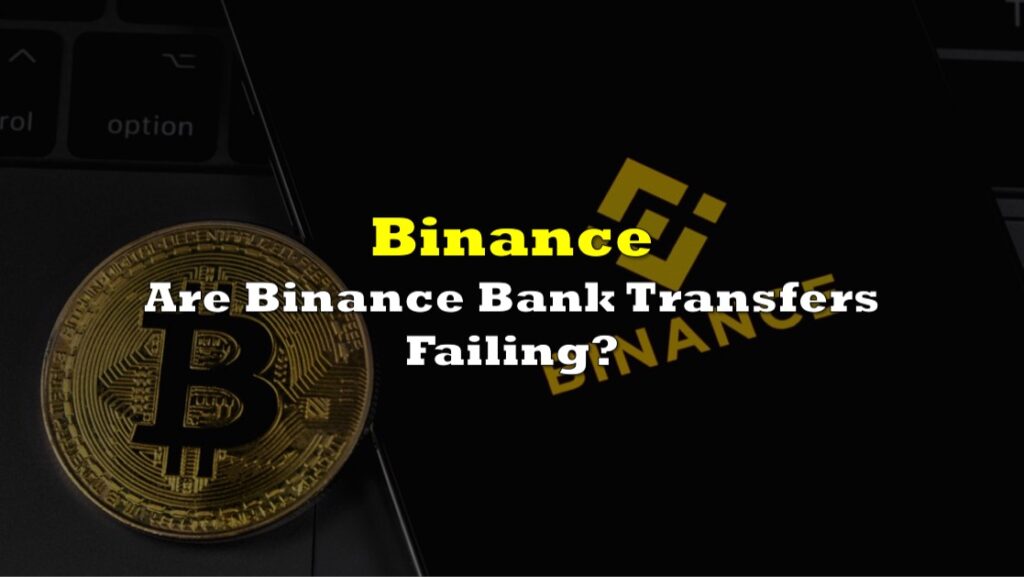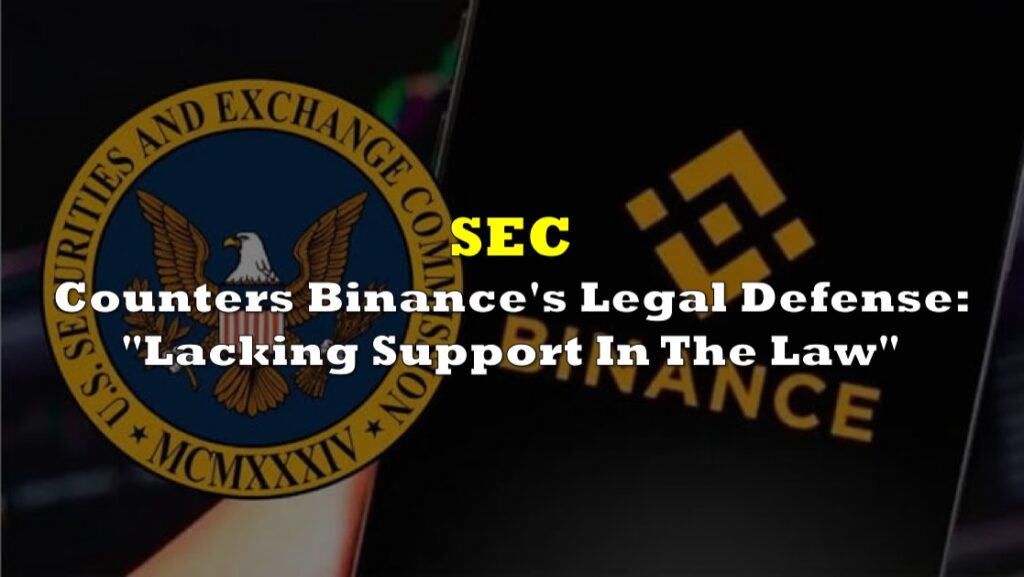In a significant development in the cryptocurrency world, Changpeng Zhao, the CEO of Binance, and the exchange itself have pleaded guilty to criminal charges brought forth by the U.S. Department of Justice (DOJ). The guilty plea, coupled with a comprehensive settlement, includes a fine of $50 million for Zhao and a staggering $4.3 billion for Binance.
BREAKING: CZ Personally on the hook for $50,000,000 to the US Government. Binance Intl is on the hook for exactly $4,316,126,163 🚨
— Autism Capital 🧩 (@AutismCapital) November 21, 2023
The plea was entered by Zhao in a Seattle federal court on Tuesday afternoon, as reported by the Wall Street Journal. The charges against Binance involve serious violations of crucial money laundering statutes, including violations of the International Emergency Economic Powers Act (IEEPA) and accusations of operating an unlicensed money transmitter business.
Per the settlement, Binance’s guilty plea includes fines to settle civil allegations made by regulators. Time Magazine reports that Zhao has agreed to step down as part of the settlement, which involves the Treasury Department and the Commodity Futures Trading Commission.
“I made mistakes, and I must take responsibility,” Zhao expressed on social media platform X, adding, “This is best for our community, for Binance, and for myself.”
The guilty plea implicates Binance in facilitating transactions with sanctioned groups, with allegations that the exchange encouraged U.S. users to conceal their locations to evade compliance with anti-money laundering laws. The charges further extend to violating sanctions issued under the IEEPA.
The penalties for these violations are substantial, with fines reaching up to $1,000,000 and imprisonment for up to 20 years for willful violations. Operating an unlicensed money-transmitting business could result in a fine of up to $250,000 and a federal prison sentence of up to five years.
READ: After Binance, CFTC Warns It “Will Not Stop In Pursuit Of Non-US Crypto Entities”
The scheme
The government is chasing Binance mainly for not registering the platform as an exchange under the country’s regulatory purview, violating the Bank Secrecy Act and failing to implement a proper anti-money laundering program.
“In part because of this scheme, and because Defendant prioritized growth, market share, and profits over compliance with US law, Defendant became the largest cryptocurrency exchange in the world,” the complaint read.
Zhao and his cohorts allegedly “knowingly and willfully” conspired to operate Binance as an unlicensed exchange. Specifically, between January 2018 to May 2022, the government saw at least 1.1 million transactions in violation of IEEPA between users believed to be US citizens and Iranians, with an aggregate transaction value of at least $898.6 million.
The settlement, while marking the conclusion of long-running investigations into Binance, allows Zhao to retain his majority ownership but prohibits him from holding an executive role within the company. The deal does not include a settlement with the Securities and Exchange Commission (SEC), which sued Binance and Zhao in June over alleged violations of U.S. investor-protection laws.
The outcome of the case draws parallels with a previous incident involving BitMEX, where its former CEO, Arthur Hayes, pleaded guilty to anti-money laundering charges. Zhao faces a maximum prison sentence of 18 months under federal sentencing guidelines, with the actual sentence to be determined at a later date.
JUST IN: #Binance CEO Changpeng Zhao (CZ) facing 18 months in prison as part of his plea deal with the US Government.
— Watcher.Guru (@WatcherGuru) November 21, 2023
The agreement also resolves a civil lawsuit filed by the Commodity Futures Trading Commission, addressing Binance’s lack of compliance controls and allegations of providing Americans access to unregistered derivatives.
Zhao is already out on a bail arrangement, with a $175 million bond, as allegedly reported. However, the DoJ is making efforts to remove Zhao’s ability to leave the US.
CZ out on $175m bond pic.twitter.com/UL80rNlfQR
— db (@tier10k) November 21, 2023
The settlement
The settlement ($50 million for Zhao, $4.3 billion for Binance), among the largest penalties imposed in the cryptocurrency industry, underscores the increasing scrutiny faced by the sector from regulatory bodies and authorities.
The staggering amount could spell trouble for the crypto firm and Zhao, who back in 2022, had trouble explaining if the company can handle a $2.1 billion hit.
Binance to pay $4.3 billion in fines—WSJ
— Nate Anderson (@NateHindenburg) November 21, 2023
There’s no way Binance has that kind of cash without dipping into customer assets.
A year ago they couldn’t respond to whether they’d survive a $2.1 billion hit.
The countdown to insolvency has begun.pic.twitter.com/IrdPz6aNhL
If the assets of the firm won’t be enough to cover the penalty, observers are worried that this might mean reaching into Binance customers deposits, most especially as the government’s indictment “suggests there could be additional asset forfeiture related to the charges.”
🚨⚠️ Aside from the fine, the indictment suggests there could be additional asset forfeiture related to the charges. This many force them to relinquish certain crypto assets to US enforcement. pic.twitter.com/ztM7szZjA7
— Rho Rider (@RhoRider) November 21, 2023
Binance has coincidentally sent $3.9B in USDT from one wallet to another 12 days ago
— Dump Watcher (@DumpWatcher) November 20, 2023
Is this an allowance in preparation to pay for $4B DOJ is charging for temporary legal protection
If so, is this fully funded by Binance operational proceeds or commingled with user funds? pic.twitter.com/LvFcbi2JZ3
‼️ Binance and it’s criminal founder – CZ have plead guilty to a kaleidoscope of felonies (many of which endanger US national security). Isn’t it funny that Tether issued about $4billion of USDC in the last 30days? THIS IS NOT A COINCIDENCE. Tether mints $4b out of thin air, pic.twitter.com/DsXHHJlUVz
— 🇺🇸 Kyle Bass 🇹🇼 (@Jkylebass) November 21, 2023
Binance, founded in Shanghai, faced challenges as Zhao, based in the United Arab Emirates, navigated negotiations with the U.S. government. The U.A.E., while lacking an extradition treaty, has enhanced law-enforcement evidence sharing with the U.S.
Today, I stepped down as CEO of Binance. Admittedly, it was not easy to let go emotionally. But I know it is the right thing to do. I made mistakes, and I must take responsibility. This is best for our community, for Binance, and for myself.
— CZ 🔶 BNB (@cz_binance) November 21, 2023
Binance is no longer a baby. It is…
Information for this story was found via Wall Street Journal, Time, and the sources mentioned. The author has no securities or affiliations related to the organizations discussed. Not a recommendation to buy or sell. Always do additional research and consult a professional before purchasing a security. The author holds no licenses.









